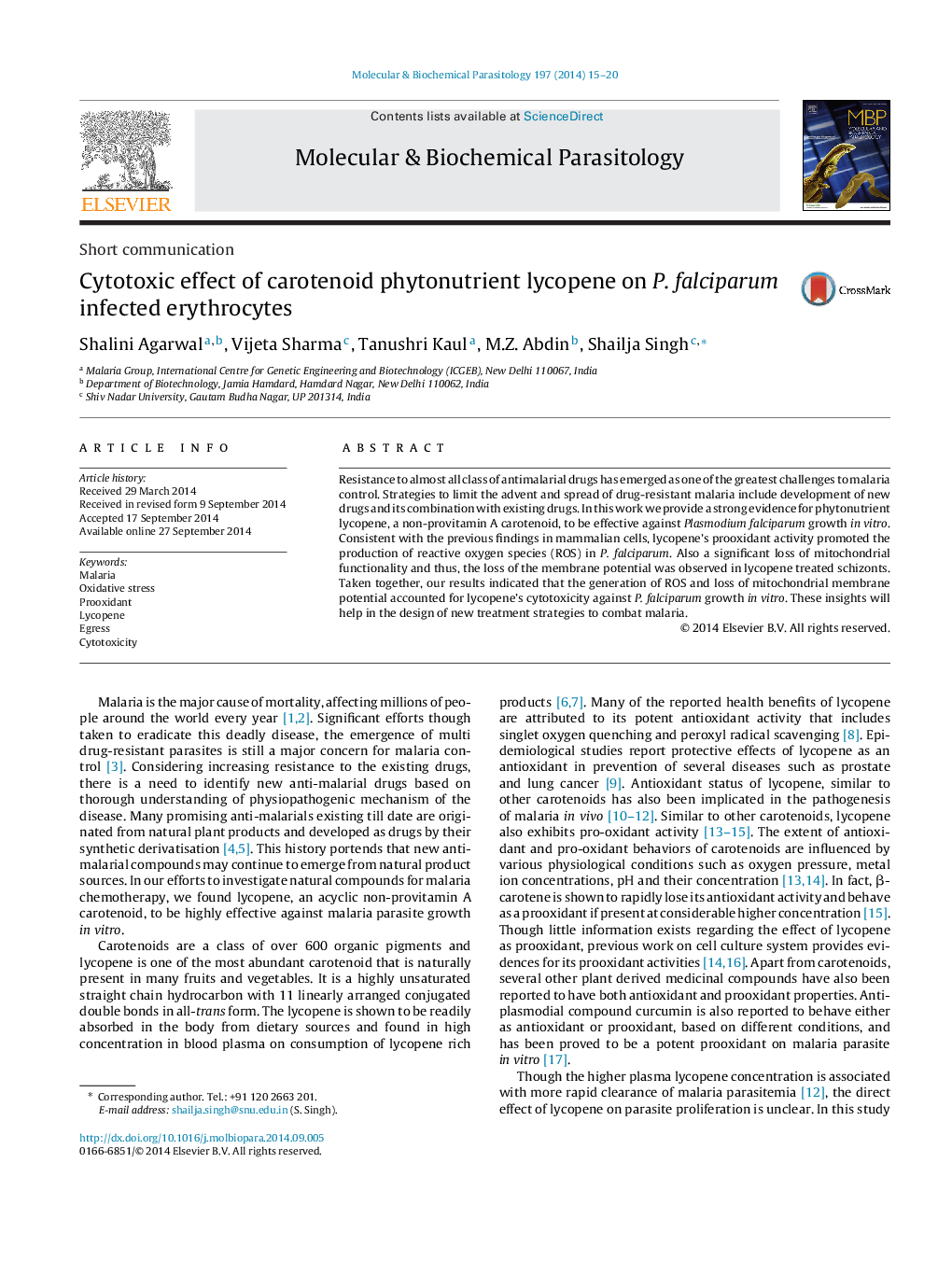| Article ID | Journal | Published Year | Pages | File Type |
|---|---|---|---|---|
| 5915408 | Molecular and Biochemical Parasitology | 2014 | 6 Pages |
â¢Carotenoid phytonutrient lycopene exerts cytotoxic effect on P. falciparum.â¢Lycopene enhances the oxidative stress of P. falciparum infected erythrocyte.â¢Lycopene enhanced oxidative stress devastates mitochondrial membrane potential of P. falciparum.
Resistance to almost all class of antimalarial drugs has emerged as one of the greatest challenges to malaria control. Strategies to limit the advent and spread of drug-resistant malaria include development of new drugs and its combination with existing drugs. In this work we provide a strong evidence for phytonutrient lycopene, a non-provitamin A carotenoid, to be effective against Plasmodium falciparum growth in vitro. Consistent with the previous findings in mammalian cells, lycopene's prooxidant activity promoted the production of reactive oxygen species (ROS) in P. falciparum. Also a significant loss of mitochondrial functionality and thus, the loss of the membrane potential was observed in lycopene treated schizonts. Taken together, our results indicated that the generation of ROS and loss of mitochondrial membrane potential accounted for lycopene's cytotoxicity against P. falciparum growth in vitro. These insights will help in the design of new treatment strategies to combat malaria.
Graphical abstractDownload high-res image (93KB)Download full-size image
